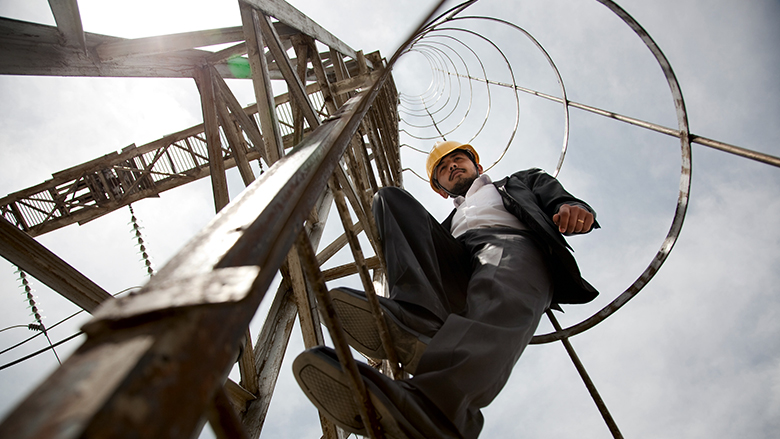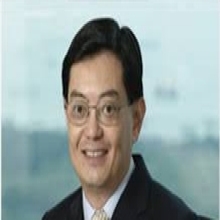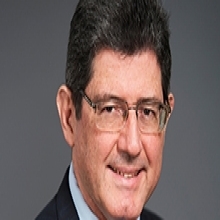8:00am Registration
9:00am Welcome remarks, Jyoti Shukla, Director, World Bank Singapore Hub for Infrastructure and Urban Development
9:05am Introduction, James Kynge, Emerging Markets Editor, Associate Editor, Financial Times
9:10am Keynote Interview, Joaquim Levy, Managing Director and Chief Financial Officer, World Bank Group
9:40am Panel Discussion: Mobilising Private Capital -- New Approaches and Structures
Given the large public funding gap for Southeast Asian infrastructure and the potential for expansion in private finance, efforts are intensifying to find new structures and instruments that reduce risk, boost incentives and generally promote private sector solutions. Multilateral entities are redoubling their efforts to ensure that commercial financing is mobilised to support government investment needs. The World Bank’s Maximising Finance for Development initiative, for example, uses a "Cascade Approach" to assist countries to locate private financing while earmarking public funds for areas less appropriate for private resources. IFC’s Managed Co-Lending Portfolio Program bundles risk insurance into a package of infrastructure loans. Existing assets are increasingly being used to mobilise new sources of financing – for example in Indonesia, with the Paiton Energy refinancing and the securitisation of toll road revenues by Jasa Marga. This session looks at these and other innovative approaches to attract private capital, including ways to increase access to capital markets, the blending of different sources of funds, and other public-private trade-offs.
Wee Seng Lim, Managing Director and Head of Project Finance, DBS
Mark Rathbone, Partner, Capital Projects and Infrastructure, Asia Pacific, PwC
Snezana Stoiljkovic, Regional Vice President, Asia Pacific, International Finance Corporation, World Bank Group
10:30am Networking Break
11:00am A Closer Look: Case Study
11:20am Session Framer: Connectivity – Financing and Managing Interdependent Infrastructure Networks
11:30am Panel Discussion: Connectivity – Financing and Managing Interdependent Infrastructure Networks
For regional bodies like ASEAN, leveraging connectivity among member-countries is essential to boost development, through enhanced flows of goods, services, investment, telecommunications and technology. Cross-border infrastructure initiatives, particularly around transport, have a major role to play in this effort. The newly minted Global Infrastructure Connectivity Alliance, scheduled to hold its first annual meeting in Paris in January 2018, is an affirmation of support for this concept. China’s Belt and Road Initiative supports mega cross-border infrastructure projects. Key questions remain, however. From where will the funding come? How best to manage an interdependent infrastructure initiative? And how will intra-regional challenges of monetary divergence, political resistance, environmental concerns, financial instability and differing compliance standards, among other issues, be resolved?
Kian Min Low, Head of Business Development ASEAN and Australia, Sembcorp Industries
12:20pm Networking lunch
1:20pm Panel Discussion: Sustainable Infrastructure — Financing a New Energy Mix
Greater improvements in the economics and efficiencies of alternative energy are attracting more diverse financiers and more corporate investments. This continued push for clean energy solutions is transforming the global energy mix and boosting the development of green bonds and other innovations in climate finance. But hurdles remain. For a start, renewable energy fosters projects can be small-scale and short-term, relative to the massive developments envisaged in the Belt and Road Initiative and other mega-schemes. Are they sufficiently large to attract investment? What are the best strategies to encourage large infrastructure asset owners to turn from fossil fuels to more sustainable solutions? Are Southeast Asia’s regulatory norms sufficient to monitor and manage a greener landscape?
Eng Seng Ang, Chief Investment Officer for Infrastructure, GIC
Joachim von Amsberg, Vice President - Policy and Strategy, Asian Infrastructure Investment Bank
Rajeev Kannan, Executive Officer, Head of Investment Banking, Asia, Sumitomo Mitsui Banking Corporation
2:15pm Networking Break
2:30pm Keynote Address
His Excellency Swee Keat Heng, Minister for Finance, Singapore
2:45pm ASEAN Finance Ministers’ Roundtable
Finance ministers of ASEAN members will discuss the region’s infrastructure requirements, highlighting their priorities in strengthening the project pineline and in harnessing capacity building support to attract private sector investors and developers. The Ministers will also examine how governments, financers and multilateral agencies can work together to boost regional development in the current economic and geopolitical environment.
4:40pm Closing Remarks and Summation: Next Steps, Action Points
A summary of the day’s discussions and outline key take-aways and action points for all stakeholders, including concrete steps that could be taken to build capacity and mobilise financing in the year ahead. These action points will be reviewed at the next Summit in 2019
Victoria Kwakwa, Vice President for East Asia and Pacific, World Bank
James Kynge, Emerging Markets Editor, Associate Editor, Financial Times





